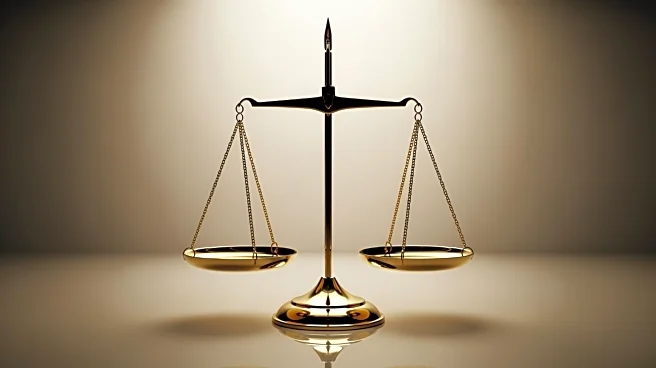What's Happening?
President Donald Trump stated in a CBS '60 Minutes' interview that he is unaware of who Changpeng Zhao, the founder of Binance, is, despite having pardoned him. Zhao, known as CZ, had stepped down as CEO of Binance and pleaded guilty to failing to combat
money laundering on his platform. He was sentenced to four months in jail and released in September 2024. Trump suggested that the pardon was part of a strategy to enhance U.S. competitiveness in the cryptocurrency industry, criticizing the Biden administration for what he described as a 'witch hunt' against Zhao. Trump emphasized his limited knowledge of cryptocurrency, attributing more involvement to his sons.
Why It's Important?
The pardon of Changpeng Zhao by President Trump highlights the ongoing political and regulatory challenges surrounding the cryptocurrency industry in the U.S. Trump's decision underscores a potential shift in policy focus towards fostering a competitive environment for crypto businesses, which could influence future regulatory approaches. The situation also reflects broader political dynamics, with Trump criticizing the Biden administration's handling of crypto-related legal actions. This development could impact the perception of the U.S. as a crypto-friendly nation and affect the global positioning of American crypto enterprises.
What's Next?
The pardon may lead to increased scrutiny of the U.S. government's approach to cryptocurrency regulation, particularly under a potential future Trump administration. Stakeholders in the crypto industry might anticipate more favorable policies, while regulatory bodies could face pressure to balance enforcement with innovation support. Political reactions are likely, with Democrats potentially criticizing the pardon as undermining legal accountability, while Republicans may view it as a necessary step to bolster U.S. leadership in the crypto sector.
Beyond the Headlines
The pardon raises questions about the ethical implications of executive clemency in cases involving significant financial and legal controversies. It also highlights the cultural and economic tensions between innovation in the tech sector and regulatory frameworks designed to prevent illicit activities. The decision could influence long-term shifts in how the U.S. navigates the balance between fostering technological advancement and ensuring compliance with legal standards.














